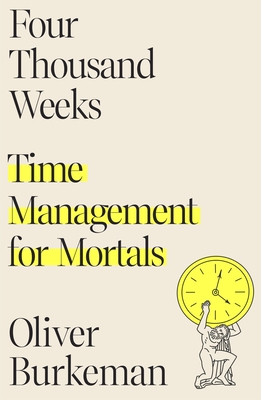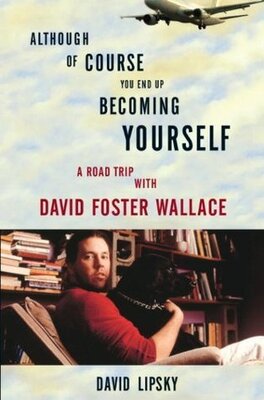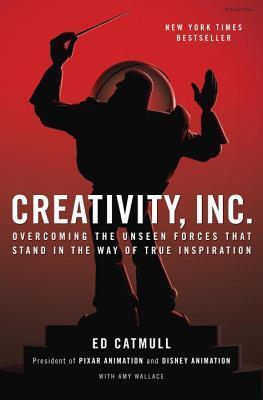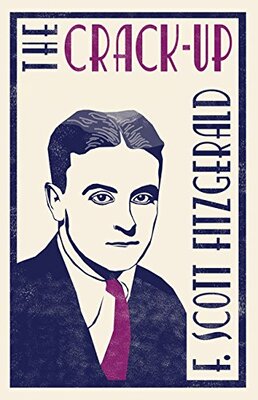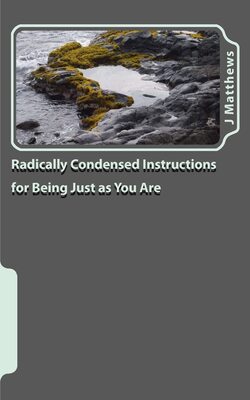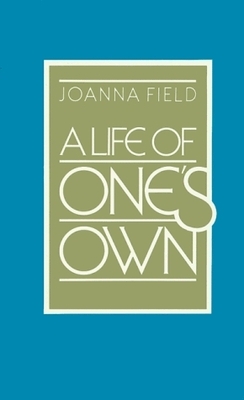
I could easily make lists of whatever came into my head but could not decide between them because in one mood one would be important, in a different mood another; I had never followed any one of them whole-heartedly. I had thought I wanted a great many friends, but had often refused invitations because I hated to feel the beautiful free space of an empty day, free for me to do what I liked in, broken into by social obligations. I had thought I wanted to be a unique individual, but had been filled with shame when anyone disagreed with me, hastening to take back what I had said. I had thought I wanted to be importantly useful in the world, but avoided all opportunities for responsibility. I had thought I wanted to plumb human experience to the depths, and yet had striven to remain immaculately aloof from all emotional disturbance.
My ordinary way of looking at things seemed to be from my head, as if it were a tower in which I kept myself shut up, only looking out of the windows to watch what was going on. Now I seemed to be discovering that I could if I liked go down outside, go down and make myself part of what was happening, and only so could I experience certain things which could not be seen from the detached height of the tower….
I had the desire always to be getting things done to prove to myself that I existed as a person at all.
I discovered that I was drifting without rudder or compass, swept in all directions by influence from custom, tradition, fashion, swayed by standards uncritically accepted from my friends, my family, my countrymen, my ancestors. Were these reliable guides for one's life? I could not assume that they were, for everywhere around me I saw old ways of doing things breaking down and proving inadequate. Not only was it that I felt dubious about trusting the dictates of a social tradition which had landed us in the war, but the voice of that tradition was so confused that I did not in fact know what it was telling me to do, what sort of life it did require of me.
People said: ‘Oh, be yourself at all costs’. But I had found that it was not so easy to know just what one's self was. It was far easier to want what other people seemed to want and then imagine that the choice was one's own.
I realized how completely untrustworthy I am in personal relationships, how I take one attitude when with one person and an opposite one with the next person, always agreeing with the person present.
The first thing I noticed was that in certain moods the very simplest things, even the glint of electric light on the water in my bath, gave me the most intense delight, while in others I seemed to be blind, unresponding and shut off, so that music I had loved, a spring day or the company of my friends, gave me no contentment.
I seem to have imagined clear thinking to be a skill one was born with, and that it only needed will-power to bring it into play. I had imagined that I should have thoughts first and then be able to talk about them. Now I began to guess that the order must be reversed, that only by talking could I learn how to think.
I want to change my attitudes; it fills me with restlessness that I am always striving after something and I don't know what it is. I envy people, artists chiefly. I want to achieve the play attitude. By this I mean concentration in an activity which has no apparent use just for the delight of doing it. Why do I want this? I don't know quite, it just seems very desirable.
As a child, if I cried and said, ‘This is too difficult, I can't do it’, someone came and helped me. Now I found myself one day unwilling to admit I was happy because of a vague sense that I might thereby forgo some advantage, might give up my claim to that special attention which seemed to be the prerogative of the miserable.
Usually I lived with a general feeling that all would work out for the best, but this would be broken by occasional outbursts of misery in which I felt quite definitely that everything was hateful. These moments never lasted very long. Usually after a night's rest I would be back again in my vague optimism, never considering that my life was my own to live, that if I did not manage it as I wanted it no one else would. Into this smooth surface of taking things for granted there began to emerge an awareness of certain mental discomforts which up till then I had not known, only suffered.
But if my aim in talking was mainly sociable – to get on with other people, to make friends – quite clearly there must be a lot of things which I did not talk about. For my private worries would bore others and my private foibles perhaps shock them. What then would happen to ideas on matters which were never talked of because I should feel too ashamed? I had never asked myself this question before, for I had grown up with a hatred of having my personal affairs discussed. When I listened to the personal talk of others I used sometimes to go hot all over, feeling it utterly impossible that I should ever talk like that about myself. I had thought that private affairs should be dealt with privately. What I had not realized was that usually, if I could not bear to deal with them in public, then they were also too painful to be dealt with in the privacy of my own mind. For, unless I was very clear what I was about, I tried to hide the painful thought just as urgently from my own eyes as from those of others.
I was always wanting people to be either all lovable or all hateful. When I was getting on well with someone everything they said was right and nothing was too good for them. Then, if some chance altered the emotional situation between us, they would become hateful to me, I would see all their weak points and fail to remember that they had ever had any good ones at all.
But if expectancy of delight was a stumbling-block, so that vivid pictures of what might happen shut me off from perceiving what actually did happen, an even greater impediment was expectancy of failure. For here the ingrained habit of a lifetime seemed invariably towards contraction. As soon as the fear of making a mistake rose in my mind, then the act of wide attention became almost impossible. For the more I realized the difficulty, the more I tried and focused my attention to a pin-point, like an internal screwing-up of one's eyes to see better.
To attend to something and yet want nothing from it, these seemed to be the essentials of the second way of perceiving. I thought that in the ordinary way when we want nothing from any object or situation we ignore it. Or if we are forced to attend to something which does not offer us any means of furthering our desires, then sheer habit makes us attend in the narrow focus way, looking at separate details and being bored. But if by chance we should have discovered the knack of holding wide our attention, then the magic thing happens.
At any moment there exist in the fringes of my thought faint patternings which can be brought to distinctness when I look at them. Like a policeman with a flash-light I can throw the bright circle of my awareness where I choose; if any shadow or movement in the dim outer circle of its rays arouses my suspicion, I can make it come into the circle of brightness and show itself for what it is. But the beam of my attention is not of fixed width, I can widen or narrow its focus as I choose. To explore the sky for aircraft a searchlight must travel backwards and forwards, sweeping the sky like a broom. My thought can do that, but it has another movement as well; it can widen its beam and survey the whole sky at the same moment, and this widening is something which I can control at will.
Gradually now I saw more clearly what had been my assumptions about the meaning of ‘trying’ and ‘willing’. ‘Trying’ was an internal clenching and grunting which I seemed to imagine had a virtue of its own; for how often had I not successfully excused my failures at school and at home by saying, ‘Well, I did try.’ Once, quite recently, when I had answered a difficult question by saying, ‘I am trying to think’, someone had said, ‘Don't try, think.’ So at long last I had grasped the idea that the indispensable preliminary to every task which appeared difficult was not a general tensing and contraction, but that the response I hoped for would happen if I just looked in the direction I wanted to go and waited.
I found that there were different ways of perceiving and that the different ways provided me with different facts. There was a narrow focus which meant seeing life as if from blinkers and with the centre of awareness in my head; and there was a wide focus which meant knowing with the whole of my body, a way of looking which quite altered my perception of whatever I saw. And I found that the narrow focus way was the way of reason. If one was in the habit of arguing about life it was very difficult not to approach sensation with the same concentrated attention and so shut out its width and depth and height. But it was the wide focus way that made me happy.
For a long time I was continually putting off the next step in my exploration because I felt I ought to know more, knew there were many books written about these things, felt that I must read them all before I could go any further. Whenever I gave in to this impulse I found it disastrous. It took me years to learn that I must never begin my search by looking in books, never say, ‘I know too little, I must read some more before I start’, but that I must always observe first, express what I observed, and then, if I needed it, see what the books had to say.
Particularly was I struck by the effect of writing things down. It was as if I were trying to catch something and the written word provided a net which for a moment entangled a shadowy form which was other than the meaning of the words. Sometimes it seemed that the act of writing was fuel on glowing embers, making flames leap up and throw light on the surrounding gloom, giving me fitful gleams of what was before unguessed
It was as if my excluded thoughts, if I refused to give them expression, would find it for themselves, like bubbles which must eventually reach the surface. And they would find expression by silently biasing my view of the world around me. Sometimes my hatred of some part of myself which I would not accept became a hatred of someone else, and I would say all sorts of things about that person, but anyone who was perceiving could tell that I was really speaking about myself. If only I could remember and know that half the things which people said about the world did tell me useful facts, particularly when spoken with vehemence, but did not tell what the speakers intended. For they were not giving me facts about the world, but facts about themselves.
I was also astonished to find the effect of relaxing upon physical skill. Just as I had begun this whole enterprise thinking that the critical point would lie in what I did, and that looking at the facts was only a preliminary before deciding what to do, so in skilled movements I had thought success depended upon the direct willing of the movement. And just as I had found out that in the management of my life to see the facts was not a preliminary excursion but the very core of the problem, for what I did followed inevitably on what I had seen, so I found quite a new approach to the question of skill. I found that if I used my will to keep my attention fixed on the end I wanted to achieve and on keeping my muscles relaxed, then the body knew how to find its own means, I did not have to think about what my limbs were doing at all. If I did try to manage my muscles deliberately I was merely interfering in a job that my body knew much better how to manage than I did.
I next began to realize that not only must I not try to drive my muscles, but also I must not try to drive my sensations. I found that if, when I was wanting to perceive, I stood back and let my eye take its own course it had many things to tell me.
What I had to do, in the conscious phase of my thinking, was not to strain forward after new ideas, but deliberately to look back over the unconscious phase and see what bearing the ideas there thrown up had upon the matter in hand. Instead of trying to deal with wandering thoughts by shamefacedly pretending I never had any, I must recognize these blind excursions as an essential part of thought, and always look to them to decide what they were about.
I was as sure as that I was alive, that happiness not only needs no justification, but that it is also the only final test of whether what I am doing is right for me. Only of course happiness is not the same as pleasure, it includes the pain of losing as well as the pleasure of finding.
